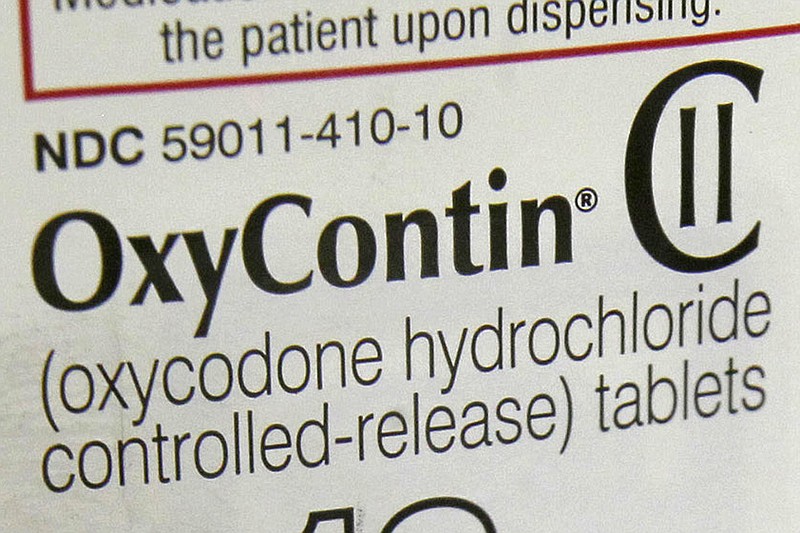MONTGOMERY, Ala. (AP) - Alabama filed a lawsuit on Tuesday against the manufacturer of OxyContin and other opioids, becoming the latest state seeking to hold drug companies accountable for an addiction epidemic.
Alabama Attorney General Alabama Steve Marshall filed the lawsuit in Montgomery federal court against Purdue Pharma, L.P. and its branches. The lawsuit claims the manufacturer engaged in deceptive marketing practices that misled patients and doctors about the benefits of the drugs and the risks of addiction to the powerful painkillers.
"Folks are dying every day as a result of overdoses," Marshall told The Associated Press. "It's not just a law enforcement problem. It's a public health problem."
The Connecticut-based company denied the allegations in a statement, saying it also was troubled by the epidemic and was seeking through specific steps to be "part of the solution."
The lawsuit alleges the company violated a state law against deceptive marketing practices and created a drug-related public nuisance. Alabama said the company engaged in a marketing campaign so that opioids would be prescribed, not just for severe short-tern pain, but for more common aches and pains like arthritis, lower back pain and headaches.
"Purdue knew, and has known for years, that, as except as a last resort, opioids were addictive and subject to abuse - particularly when used long-term for chronic pain. Purdue further knew, and has known for years, that with prolonged use, the effectiveness of opioids wanes, requiring increases in doses and markedly enhancing the risk of significant side effects and addiction," the lawsuit read.
Marshall said he anticipates the lawsuit will eventually be transferred to Ohio where multidistrict litigation is ongoing. The Alabama attorney general attended the start of settlement talks in that litigation last week.
At least 13 states have filed lawsuits against opioid manufacturers.
Alabama ranks first in the nation in the number of painkiller prescriptions per capita. Alabama had more than 5.8 million opioid prescriptions written in 2015. That equates to a rate of 1.2 prescriptions per person, the highest rate in the country. By comparison, the national per capita was 0.71 in 2015.
Marshall's office estimated that 30,000 Alabamians over age 17 are dependent upon heroin and prescription painkillers.
Marshall said Purdue Pharma is the only defendant in the lawsuit because it is the largest provider of opioids in the state. The lawsuit seeks monetary damages and changes to its marketing practices.
John Puskar, director of public affairs for Purdue Pharma L.P., said the company vigorously denies the allegations in the state's lawsuit.
"We are deeply troubled by the prescription and illicit opioid abuse crisis, and are dedicated to being part of the solution. As a company grounded in science, we must balance patient access to FDA-approved medicines, while working collaboratively to solve this public health challenge," Puskar said in a statement.
He said the company has distributed the guideline for prescribing opioids for chronic pain of the federal Centers for Disease Control and Prevention. He also said the company developed three of the first four FDA-approved opioid medications with abuse-deterrent properties and has partnered with law enforcement to ensure access to naloxone, a drug that reverses overdoses.
